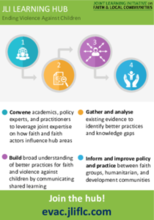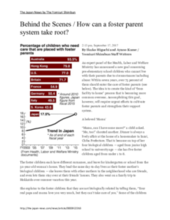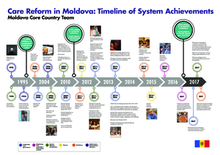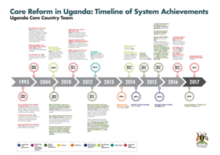Demographic Data
|
Sources: World Bank, UNICEF,UNDP HDR 2015, DHS 2014 |
Displaying 9101 - 9110 of 14398
The Joint Learning Initiative on Faith & Local Communities (JLI) has launched the Ending Violence Against Children Hub (EVAC Hub) dedicated to better understanding the role of religion and faith actors in protecting children against violence. Policymakers, practitioners and researchers are encouraged to join.
Charity donations to orphanages are causing children harm, says Felicity Hannah in this piece for the UK's Independent.
17.5% of children who need care in Japan live in foster placements, while most of them are living in institutions; an expert panel of the Health, Labor and Welfare Ministry, however, has announced a new goal which prioritizes foster care.
This infographic provides a historical timeline of the alternative care reform process in Armenia, marking key achievements in the establishment of policies, strategies, guidelines, procedures, and programs to improve the quality of care and protection for children without adequate family care.
This infographic provides a historical timeline of the alternative care reform process in Ghana, marking key achievements in the establishment of policies, guidelines, procedures, and programs to improve the quality of care and protection for children without adequate family care.
This infographic provides a historical timeline of the alternative care reform process in Moldova, marking key achievements in the establishment of policies, guidelines, procedures, and programs to improve the quality of care and protection for children without adequate family care.
This infographic provides a historical timeline of the alternative care reform process in Uganda, marking key achievements in the establishment of policies, guidelines, procedures, and programs to improve the quality of care and protection for children without adequate family care.
The foster care "hackathon" series explores how technology can be optimized to streamline child welfare systems and improve series to young people in care and their families.
This paper investigates young care leavers' expectations of their future after discharge from care.
This presentation delivered by Dr. Kristen Cheney describes her research findings on the "Orphan Industrial Complex," which suggest that orphan tourism, orphanage volunteering, and donor support for orphanages are the primary drivers of the unnecessary separation of children from their families and the harmful institutionalization of children.






